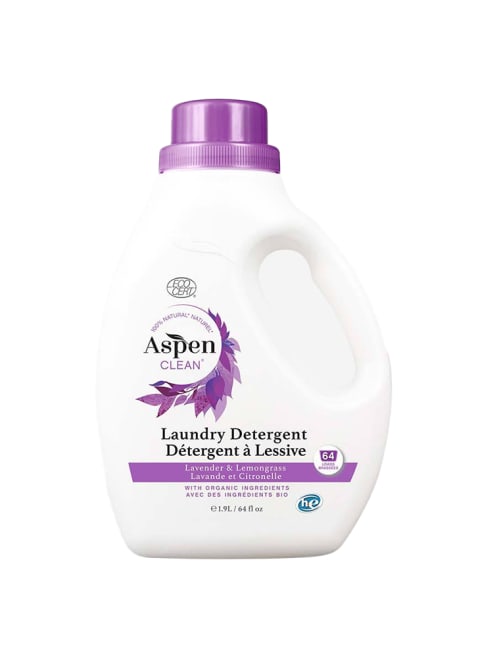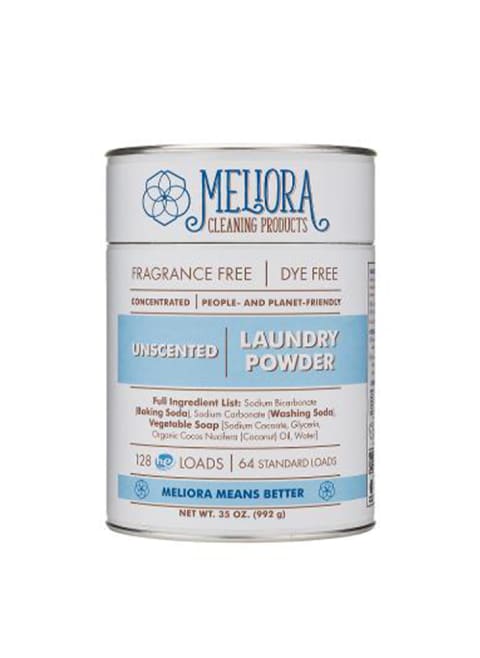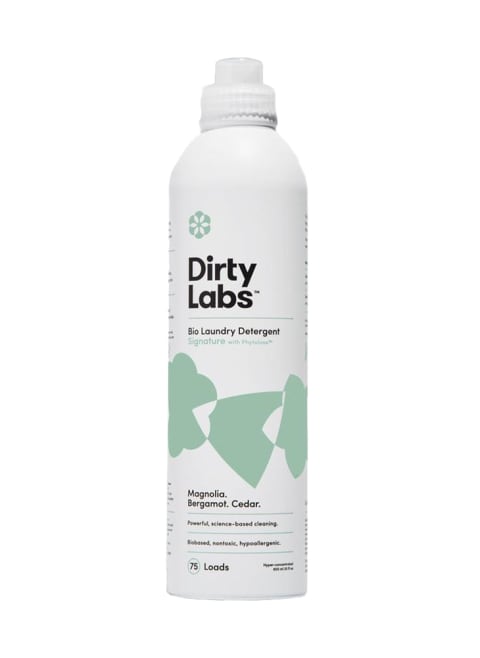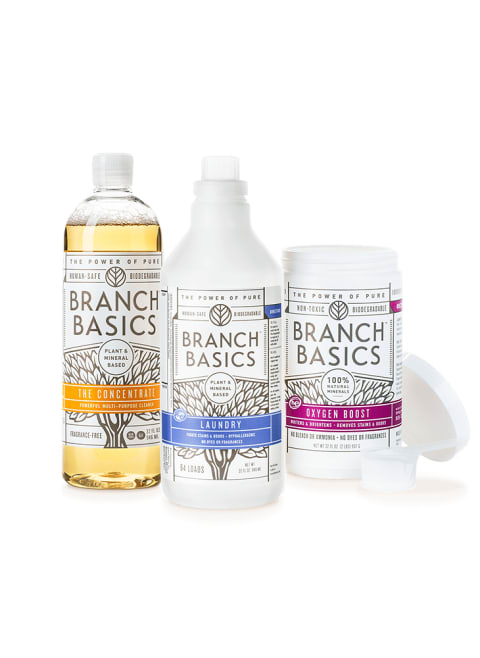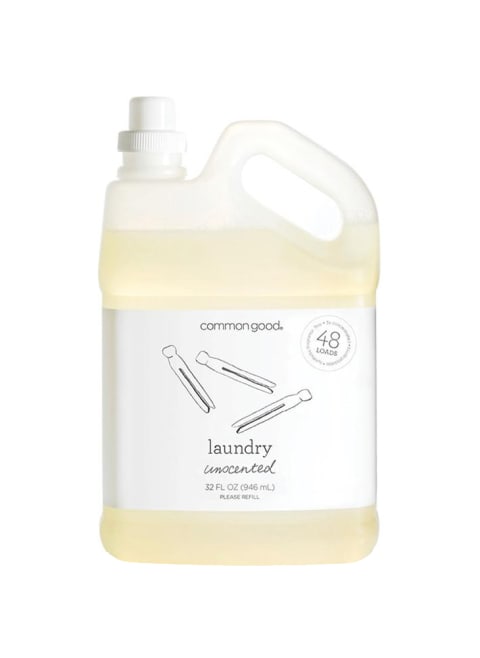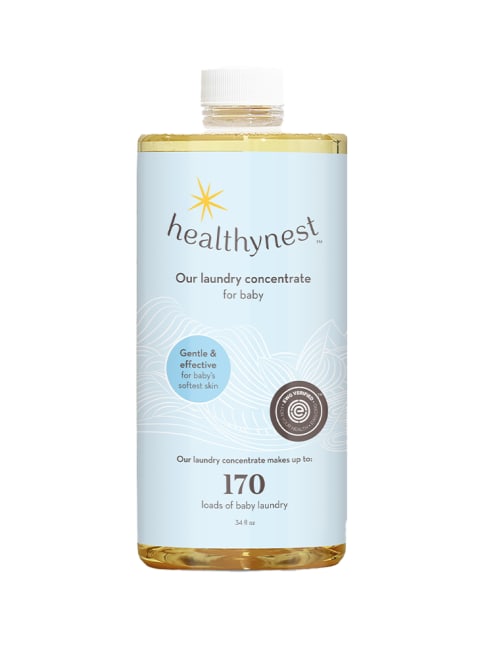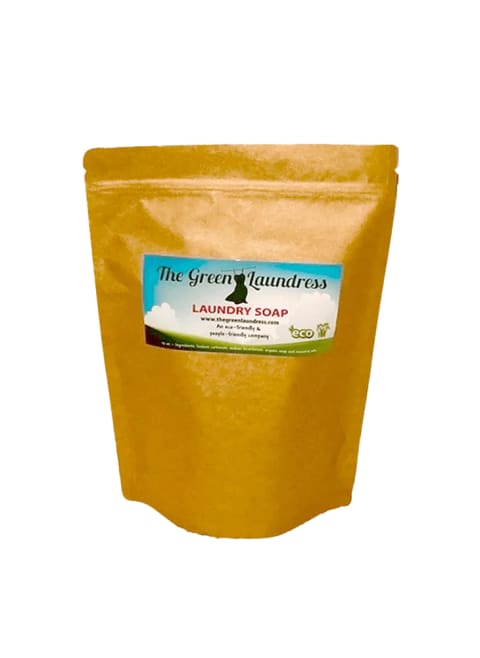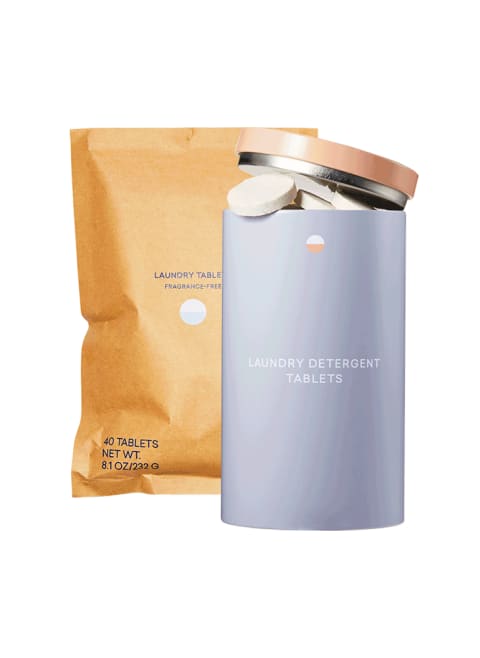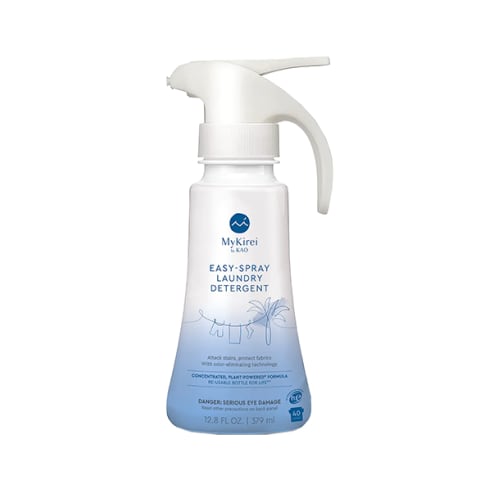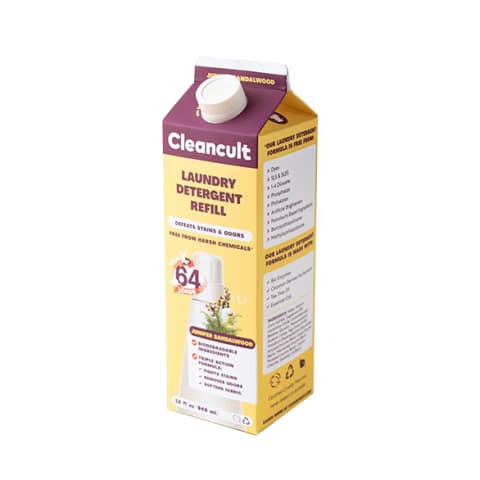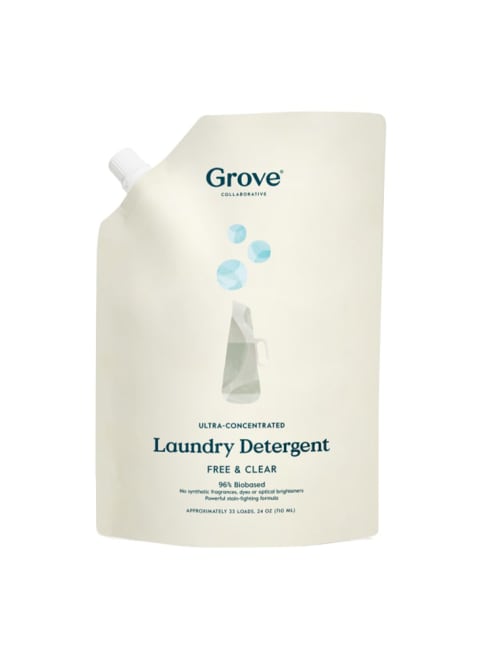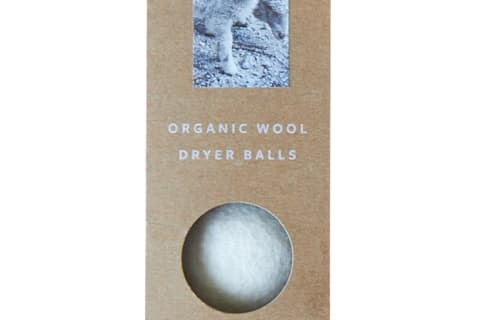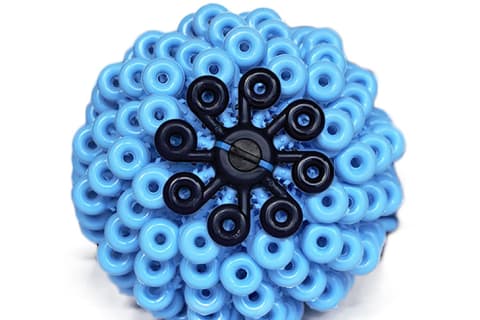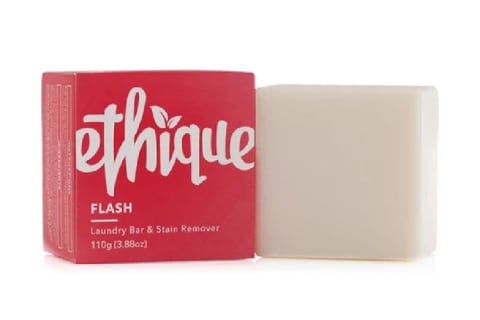This means that you need to turn that sucker around and read its ingredients list to get a sense of what’s really in it. Many conventional detergents contain chemicals that can linger on clothes and aggravate your skin. (Here’s your guide to the ones to avoid.) If these chemicals don’t completely biodegrade, they can also contribute to water pollution. To name names, research shows that certain surfactants—compounds that help detergents remove dirt from the surface of clothing—in particular can pose a threat to aquatic life2. For those who want to avoid such nasties, we did the dirty work of rounding up detergents that use safe ingredients and package them in earth-friendly ways. We know that laundry is personal, so we split up the list to speak to different needs and values. After much deliberation, here are the criteria we went with for each category: Have finicky skin? Go for one of the gentler, fragrance-free options we’ve identified. They all use minimal ingredients with maximal efficacy, so any one you choose will leave your clothes fresh and your conscience squeaky-clean. Sustainability perks: Biodegradable formula, recycled plastic bottle Health perks: EWG Verified Safe Price: $26.99 (per load: 42 cents) Sustainability perks: Biodegradable powder formula, plastic-free packaging Health perks: Simple, safe ingredient list Price: $17.99 (per load: 28 cents) Sustainability perks: Biodegradable formula, recyclable aluminum bottle Health perks: EPA Safer Choice certified, free of California Prop. 65 chemicals Price: $17.10 (per load: 23 cents) Sustainability perks: Biodegradable formula, concentrate Health perks: MADE SAFE certified Price: $64 for a laundry kit, $49 for just the concentrate (per load: 26 cents) Sustainability perks: Biodegradable ingredients, option to refill Health perks: Designed for sensitive skin Price: $14 (per load: 29 cents) Sustainability perks: Biodegradable formula Health perks: MADE SAFE certified, EWG-Verified Price: $60 (per load: 35 cents, also comes with three wool dryer balls to reduce static, drying time and wrinkles) Sustainability perks: Biodegradable powder formula, recyclable packaging Health perks: Simple, plant-based ingredient list Price: $14 (per load: 29 cents) Blueland’s plastic-free laundry detergent comes in a compostable paper pouches, which you can then transfer to a tin that is unexpectedly chic for a laundry zone. Sustainability perks: Plastic-free tablet form, compostable packaging Health perks: Free of synthetic fragrances, phthalates, and parabens Price: $22.50 (per load: 38 cents, also comes with reusable tin) The phosphate-free formula is also safe for those with sensitive skin. Sustainability perks: Refillable bottle, low-waste refills Health perks: Phosphate-free Price: $10.99 (per load: 27 cents) Sustainability perks: Packaging is recyclable in most areas, biodegradable formula Health perks: Paraben- and phthalate-free Price: $34.99 for 4 (per load: 16 cents) Sustainability perks: Concentrated formula that can be bought on a refill subscription Health perks: Paraben- and phthalate-free Price: $9.95 (per load: 30 cents) But if you’re looking to save a little money and further reduce packaging waste, making your own laundry detergent is also an option: This four-ingredient DIY recipe uses Castile soap as a base, and its odor-neutralizing power can be enhanced with a little bit of white vinegar, a surprising laundry day hero that can be used a number of ways on clothes. Whatever detergent you’re using, washing your clothes in cold water (either by hand or in a machine) is the better environmental move, as anywhere from 75 to 90% of the energy required to clean a load of laundry goes toward heating the water. Only washing your clothes when needed will also lighten your laundry’s environmental impact—especially when it comes to synthetic fabrics. Petroleum-derived synthetics shed plastic microfiber particles into waterways with each wash, which could harm aquatic life. Shop for more eco-friendly natural fibers like cotton, hemp, and linen instead, and when you do wash your polyesters and rayons, pop a microplastics trapper into your machine. Air dry when possible to avoid dryer emissions, and skip chemical-heavy dryer sheets for simple wool dryer balls. Emma received her B.A. in Environmental Science & Policy with a specialty in environmental communications from Duke University. In addition to penning over 1,000 mbg articles on topics from the water crisis in California to the rise of urban beekeeping, her work has appeared on Grist, Bloomberg News, Bustle, and Forbes. She’s spoken about the intersection of self-care and sustainability on podcasts and live events alongside environmental thought leaders like Marci Zaroff, Gay Browne, and Summer Rayne Oakes.


